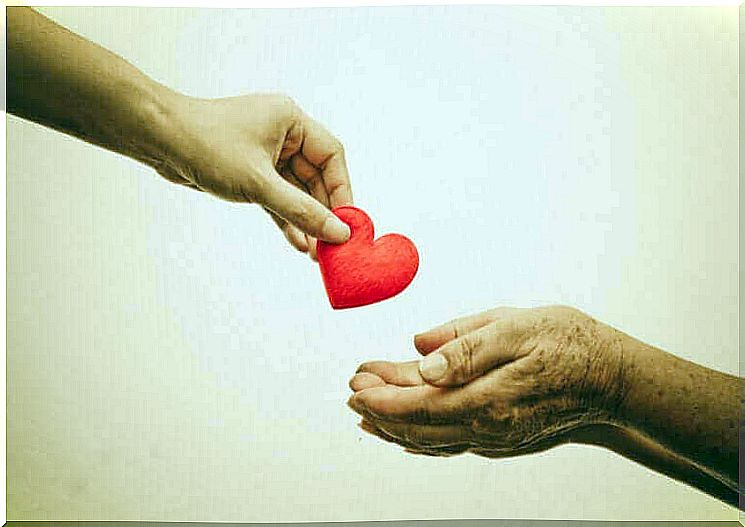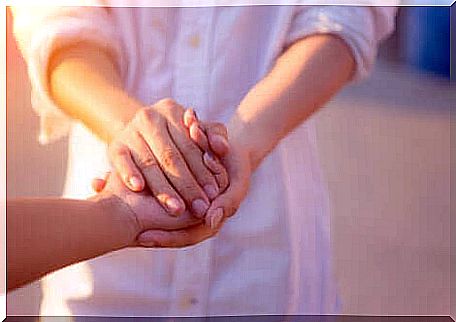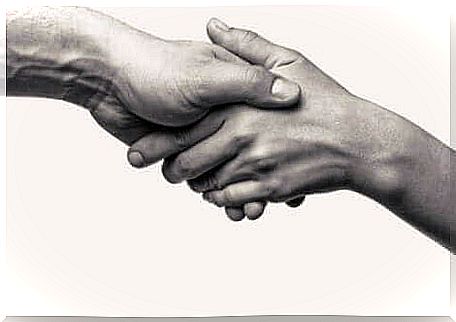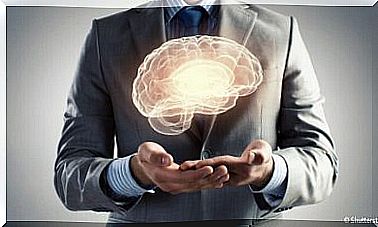Do We Help Out Of Empathy Or Anxiety?

When we help a family member, friend or stranger on the street, we feel selfless and caring. Reaching out to someone in need makes us believe that we are better people, endowed with empathy, with high values and high morals.
Likewise, when we refuse to help, we feel selfish. And, in the same way, we judge those who refuse to offer their support to others. But what if the helping behavior isn’t exactly a selfless act ?
Have you ever stopped to think about the motivations behind your desire to help and be generous to others? Are you sure you are still moved by emotions of understanding and empathy?
What if the desire to contribute to the well-being of others was not the reason for your solidarity? Some research explores these questions and leads to interesting conclusions.

Are we helping out of empathy or anxiety?
The prosocial behaviors of humans have been the subject of studies and research for decades. Why are we helping? Are we born with such a predisposition or is it a cultural learning? These and other questions have been studied and debated by many authors.
Observing another person in pain has been shown to activate the same neural networks in the brain as those involved in first-person pain treatment. That is, to some extent we are able to feel the pain of another person like our own.
But what exactly do we feel in such situations? The hypothesis that seems to have the most empirical support is that which states that when faced with the vision of a person in need, we can react in two different ways :
- On the one hand, we may react with anguish, disgust, worry or horror to the situation on the other.
- On the other hand, we can experience compassion and understanding. We can be truly moved.
The awakening of one or the other feeling depends on several factors. First of all, the specific context of suffering in which the individual finds himself, but also the personal disposition of the one who observes him. Two people can have different reactions to the same event; and the same individual may react differently to two other painful situations.
What is our motivation?
Either way, whether we are driven by anguish or compassion, it is likely that we will help those in need. However, the motivations will be very different in each case.
When we are alarmed, disgusted or worried, our behavior is selfish; we help the other person to relieve the discomfort they feel when they see them in distress. On the contrary, if we feel moved, we will act under a truly altruistic motivation, aimed at relieving the suffering of the other and not our own.
This reality has been confirmed by several studies carried out among university students. They found that the type of support model put in place depended on feelings experienced. That is, those who activated anxiety acted with the motivation to reduce it and those who activated compassion acted with the aim of reducing the need for the other.
We cannot choose the type of response that will awaken in us. So we cannot say that one group is more or less favorable to the other morally.
On the other hand, one of the studies revealed an interesting fact: when help comes at a high personal cost, those who tend to have genuine empathy exhibit selfish behavior. So it seems that the feeling of personal sacrifice cancels out the initial altruistic impulse.

Are we united beings?
These findings reinforce the continuing ambiguity about the extent to which human beings are truly supportive, altruistic and generous. We already knew that helping often gives us a feeling of satisfaction; but we now know that we can also help to avoid our own discomfort.
Our own feelings being involved, then is it possible to say that we are really moved by the concerns of the other? In all cases, and whatever the latent motivation, prosocial behaviors are beneficial.
They help the one who receives them and, it seems, also the one who realizes them. For this reason, it is important to continue to promote them in order to foster a more satisfactory social coexistence.










